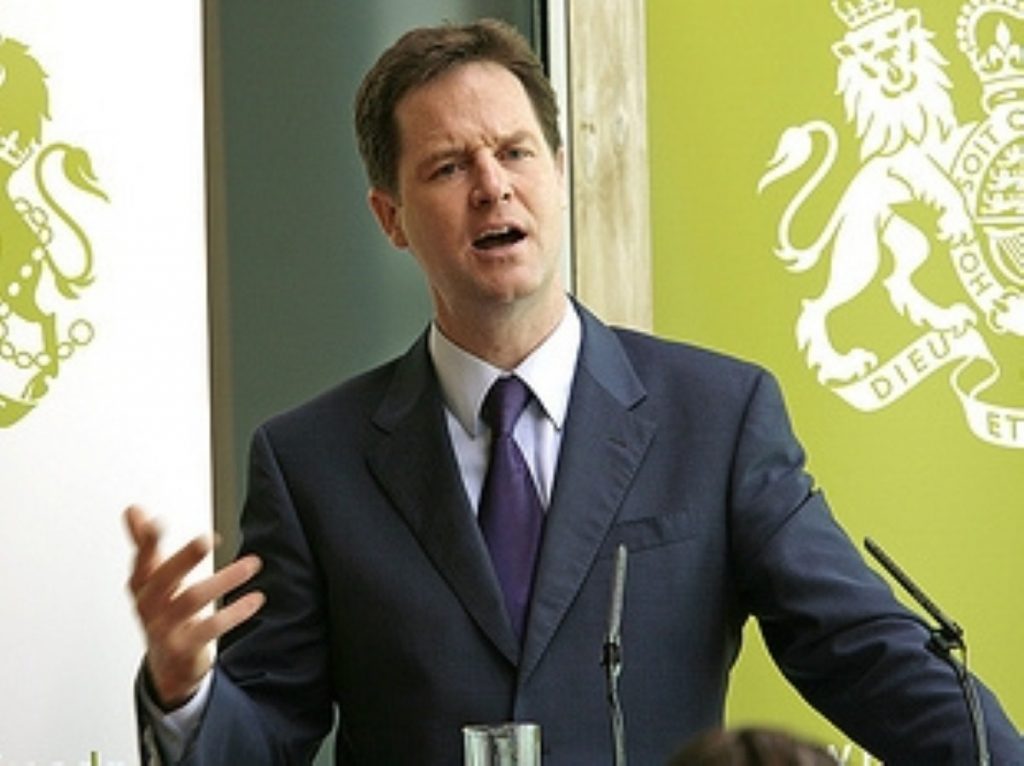Clegg: Party funding must face reform
by Peter Wozniak
Nick Clegg is to launch his campaign for reform of how political parties are funded, in an address to the committee on standards in public life.
The deputy prime minister will be keen to see at least some his cherished programme of political reform become a reality, particularly if the flagship referendum on AV results in a ‘no’ vote.
Mr Clegg will also be looking to showcase Liberal influence on government policy come the Lib Dem party conference in Liverpool in two weeks’ time.


The proposals to be considered include an increase in state funding for political parties, with the taxpayer matching small donations to encourage the parties to seek new members and small-scale donations, rather than relying on individuals giving vast sums.
Sir Christopher Kelly, chairman of the committee, said: “While significant difficulties remain, there is sufficient will to reform the system to give us some hope that it ought to be possible to find a solution which is both firmly based in principle and sufficiently acceptable to the main players to be sustainable.”
Mr Clegg’s Liberal Democrats have a vested interest in seeing more state funding of political parties, since they receive a comparatively paltry amount in private donations relative to the ‘big two’.
Labour has become increasingly reliant upon union sources of funding in recent years, and large public sector unions maintain an influential grip on the party’s power structure, including having a third of the bloc-votes for the Labour leadership election currently underway.
The Conservatives, meanwhile, will be reticent to impose limits on donations, given their backing by numerous private donors giving large sums individually, and arguably stand to lose most from any reforms, given that they are currently at the top of the pecking order in terms of income.
Mr Clegg may have to convince Tory cabinet ministers to come behind the proposals, in order to keep a highly sceptical Conservative party in line.
Given that the entire public sector is facing sharp restraint in spending, the appetite among MPs for increasing state funding of political parties will not be high.
The Committee on Standards in Public Life is an independent body designed as a watchdog for parliamentarians’ activities.
It is currently gathering evidence for its review into party funding, to be published in 2011.












